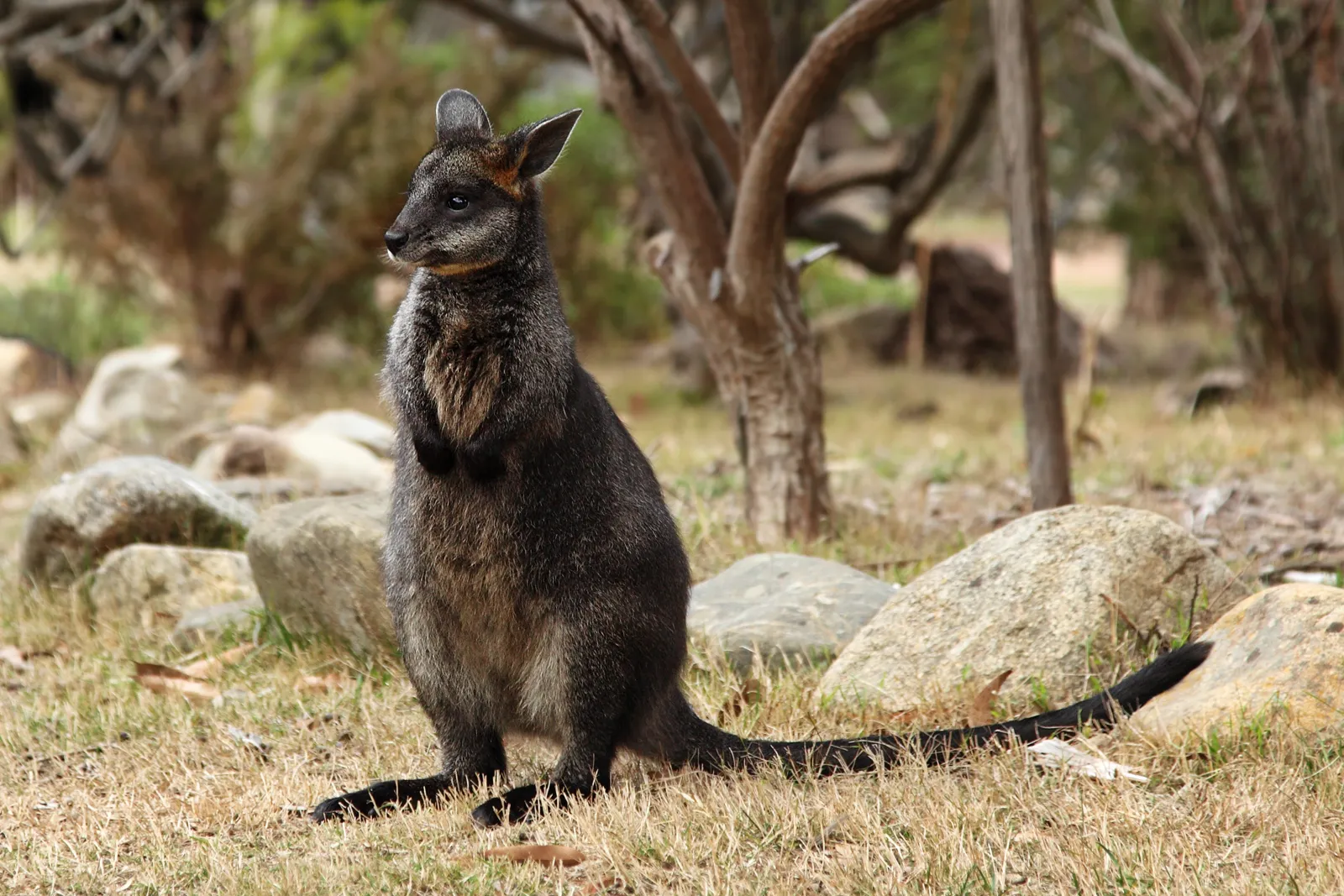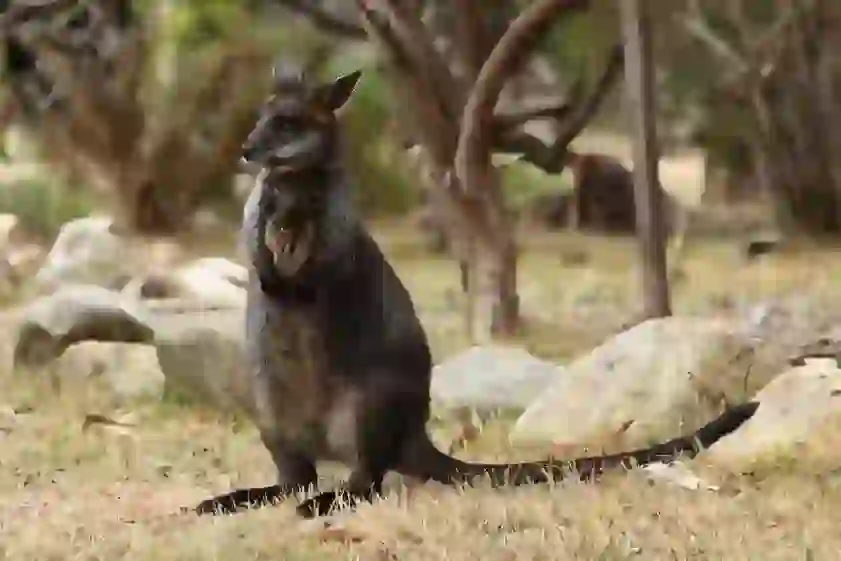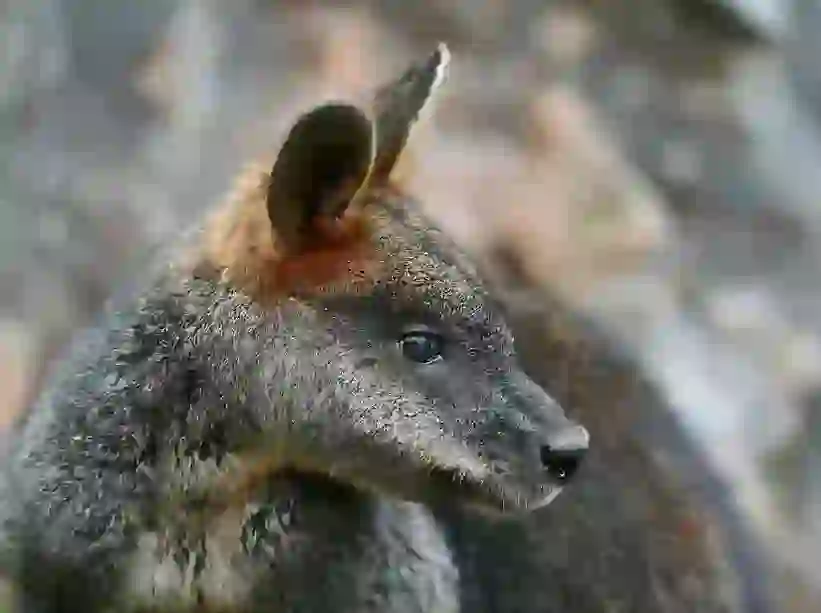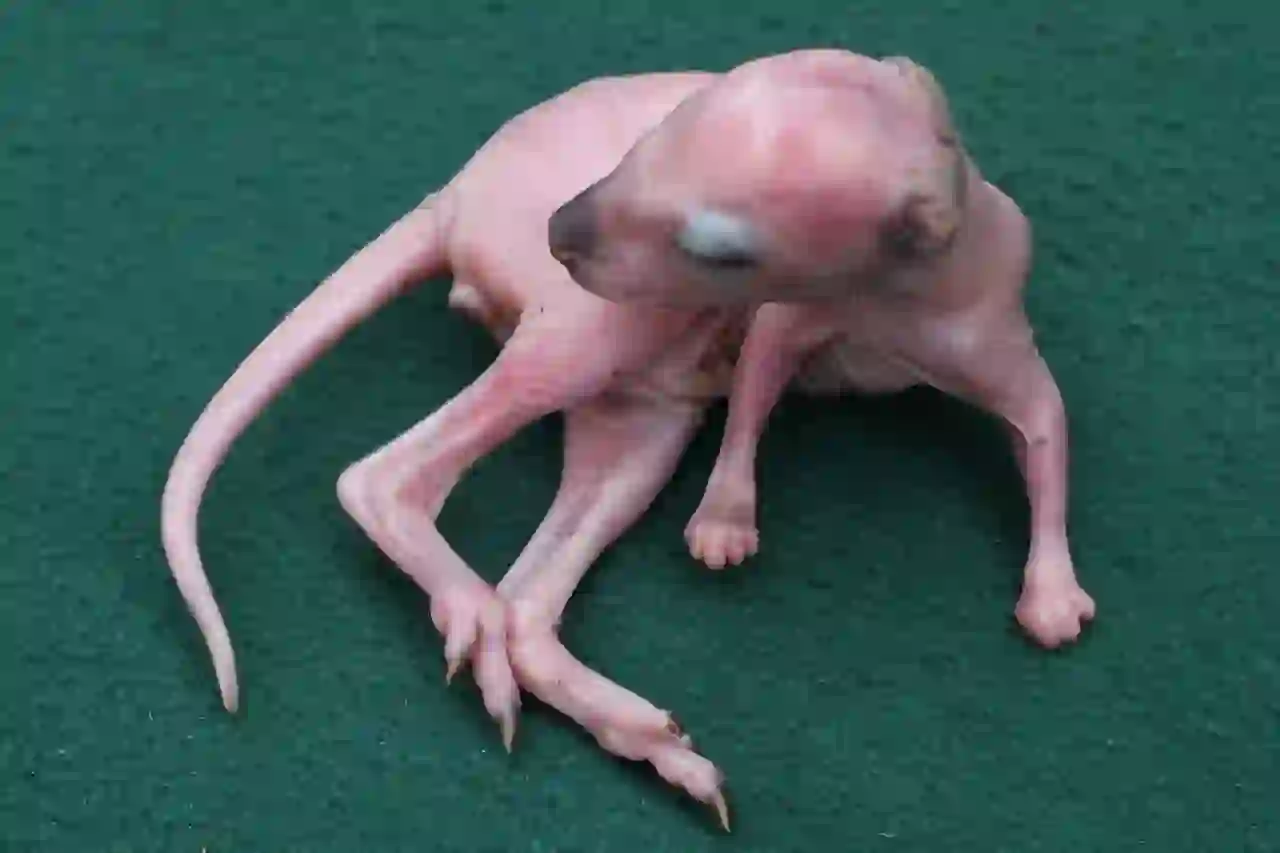
Swamp Wallaby
Swamp Wallaby
Swamp Wallaby
In the wetlands of eastern Australia, the swamp wallaby lives a secluded life. They have adapted to this humid environment, evolving in unique ways. Let's delve into the fascinating ecology of the swamp wallaby and the importance of the wetlands they call home.
Swamp Wallaby Basic Infomation

| Property | Value |
|---|---|
| Scientific Name | Wallabia bicolor |
| Taxonomic Status | ACCEPTED |
| Rank | SPECIES |
| Vernacular Names | Swamp Wallaby |
| Kingdom | Animalia |
| Phylum | Chordata |
| Class | Mammalia |
| Order | Diprotodontia |
| Family | Macropodidae |
| Genus | Wallabia |
| Habitats | Wetlands and forests |
| Conservation Status | Least Concern |

Size
They stand about 60 to 85 cm tall and weigh about 17 to 20 kg. Males are slightly larger than females.

Lifespan
Their lifespan in the wild is about 12 to 15 years.

Distribution
They are widely distributed along the coast of eastern Australia, from southern Queensland to Victoria.
Swamp Wallaby Q&A

What kind of wallaby is the swamp wallaby?
The swamp wallaby, as its name suggests, is a wallaby that lives in wetlands. They are larger and stockier than other wallabies and have adapted to life in wetlands.
For example, their feet are wide and webbed, making it easier for them to walk in swampy areas. Their fur is oily to repel water. They are also better swimmers than other wallabies.

What do swamp wallabies eat?
Swamp wallabies are herbivores, feeding primarily on grasses, ferns, and shrub leaves. They prefer plants that grow in wetlands and are often seen grazing near water.
They also eat the roots and stems of waterside plants. These plants contain a lot of moisture, allowing swamp wallabies to get water from their food without drinking directly.

What kind of lives do they lead?
Swamp wallabies tend to be more solitary than other wallabies. They are territorial and may chase away other wallabies to defend their territory.
However, males may move outside their territory during the breeding season in search of females. Females build nests in safe places to give birth. Joeys stay in their mother's pouch for about 10 months. Even after leaving the pouch, they stay close to their mother for a while.

[Quiz!] What color is the swamp wallaby's fur?
Swamp wallabies have dark brown fur. This is thought to be an adaptation to help them blend in with the dark environment of wetlands.
Their fur is also oily to repel water, which is essential for living in wetlands.

[Quiz!] What sound does a swamp wallaby make?
Swamp wallabies make a low grunting sound, "gr-r-r." This sound is used for communication and as a warning call.
They also make a hissing sound, "shoo," to threaten others.

[Quiz!] Are swamp wallabies endangered?
Swamp wallabies are not currently endangered. They are widely distributed in eastern Australia, and their population is stable.
However, in recent years, their numbers have declined in some areas due to habitat destruction, road accidents, and predation by dogs and foxes. Climate change is also a concern. To protect swamp wallabies, it is important to conserve their wetland habitats and promote coexistence with humans.

Would you like to become a part of the 'Animalbook.jp'?
Turn your knowledge into Q&A and share it with the world. ※Publication will be activated after purchase. Let's share information together!
Swamp Wallaby Type of List

Characteristics of Swamp Wallabies
- Live in wetlands
- Dark brown fur
- Large and stocky body
- Wide, webbed feet
- Oily fur
- Good swimmers
- Mostly solitary
- Herbivorous
Information
Congratulations! You are the first commenter!

Create Your Favorite List!
Swamp Wallaby
Save the animals you love! Build your own list to quickly revisit your favorites later.

Would you like to leave a comment?
※Please note: This is for the purchase of rights to post comments within the article.
Find Your Favorites!
Our shop offers a unique and attractive selection of goods themed around various animals.
Swamp Wallaby References
Swamp Wallaby Introduction of media used

Benjamint444, GFDL 1.2, via Wikimedia Commons

Toby Hudson, CC BY-SA 3.0, via Wikimedia Commons

Glen Fergus, CC BY-SA 3.0, via Wikimedia Commons

Help Enrich Our Animalbook.jp with Your Media!
We are constantly looking to expand and enrich our Animalbook.jp with amazing photos and videos of animals. If you have any media that you'd like to share, please contribute and help us showcase the beauty and diversity of the animal kingdom. Your submissions will be credited and featured in our encyclopedia, reaching a wide audience of animal lovers.


















